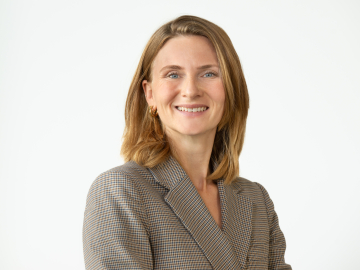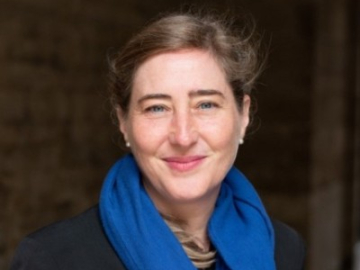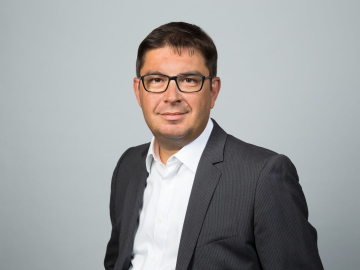Berlin, December 12-13, 2025
We are delighted to invite experienced coaches, coaching educators, academics, and leadership development professionals to the Fifteenth ESMT-KDVI Coaching Colloquium. This year, we reflect on 15 years of exploring tricky coaching cases by inviting coaches to share the proud struggles that have shaped their practice.
This Colloquium will focus on cases that challenged, stretched, and ultimately taught the coach invaluable lessons. These are the cases that, despite their maybe still unresolved aspects, became defining moments in the professional or personal growth of the author.
Over the past 15 years, the ESMT Coaching Colloquium has been a space for candid discussions about coaching challenges, where coaches and academics have analyzed hundreds of real-life cases. In this reflective milestone event, we want to create a platform for coaches to share their most meaningful learning experiences. Together, we will uncover the profound insights and growth opportunities embedded in even the most complex coaching situations.
The "Proud Struggles" theme focuses on those coaching experiences that were particularly challenging but ultimately offered significant insights into coaching practices, controversies, and struggles. We are looking for cases where:
· The coach faced unexpected complexities, dilemmas, or ethical challenges.
· The case led to meaningful personal or professional growth for the coach or challenged their deep beliefs and assumptions.
· There is an opportunity for other coaches to learn and reflect on their own practices through your experience.
As always, our emphasis is on authentic reflection rather than idealized accounts. However, this year we would like to honor the reflective work that you have done (in supervision, individual reflection, or presentation of your case in a previous Colloquium or at another event). We would like you to select a case that you would be proud to offer to others to learn from. Your contribution this year can be based on a new engagement, or it can be a reworked version of a case that you have written and presented previously.
Submission of the case this year requires an agreement to have your case included in the Colloquium Proceedings publication. By sending your work to us, you agree to this condition. Please note that protecting the client's identity is your responsibility.
We will be further working on an edited book, and we may invite you to submit your work as a chapter to that book. This invitation is not guaranteed, and you can opt-out if you do not want to contribute to that book.
If you are new to the Colloquium, please explore the following publications:
Korotov, K., Bernhardt, A., & Radeke, J. (Eds.) (2021) Cases in Executive Coaching: From the Annals of the ESMT Coaching Colloquia. 2nd Edition. Berlin. ISBN: 9798769553929
Korotov, K., Kets de Vries, M.F.R., Florent, E., & Bernhardt, A. (2012). Tricky Coaching: Difficult Cases in Leadership Coaching. New York: Palgrave McMillan. ISBN: 9780230280229.
Key points
Call for papers
Submission Guidelines
To participate, please submit a paper consisting of two parts:
1. Case Description (up to 2500 words – PLEASE NOTE THE INCREASED LENGTH BOUNDARY):
- Describe the coaching context and outline the challenge faced.
- Share your questions, dilemmas, or emotional responses to the situation.
- Protect client identities while providing sufficient detail for analysis and discussion.
2. Steps Taken and Learning Reflections (up to 2000 words – PLEASE NOTE THE INCREASED LENGTH BOUNDARY):
- Explain how you approached the situation and the outcomes achieved.
- Highlight what you could or couldn’t address during the coaching process.
- Reflect on unresolved questions or the lasting impact of the case on your practice.
- Reflect on your insights/learning points that can be useful to those who read your case.
Formatting Requirements
Given that we will be preparing Proceedings in time for the event, it is particularly important that you follow the formatting requirements and use provided case template. We reserve the right to request a revision of your submission if the requirements are unmet. Download the case template here.
Colloquium Format
Accepted cases will be presented and discussed during the Colloquium, with peer feedback and collaborative analysis. Participants agree to the requirement of maintaining confidentiality of the specific case discussions. Please send your paper or address inquiries to CoColl@esmt.org.
Fee structure
Understanding the need for the professional development of coaches, ESMT Berlin establishes a minimal fee for participation in the event. Authors of the accepted papers are offered a heavily subsidized “Participant” fee of Euro 399 for participation in this event.
A very limited number of coaches, academics, consultants, HR and L&D professionals, as well as interested executives, may be accepted to the Colloquium as Observers. An “Observer” fee for taking part in the Colloquium is Euro 1750. To be considered for admission as an Observer, please send a request to CoColl@esmt.org.
Travel and logistics
Participants will be responsible for their own travel arrangements. A contingent of rooms at preferential prices will be reserved at a nearby hotel. Participants will be responsible for making their own hotel bookings using the provided code.
Important Deadlines
· Submission Deadline: August 1, 2025
· Notification of Acceptance/Required Revisions/Rejections: September 15, 2025.
· Revised Paper Submission (if needed): October 15, 2025
Colloquium Conveners:
· Prof. Konstantin Korotov, Professor of Organizational Behavior, ESMT
· Oriane Kets de Vries, CEO, KDVI
· Andreas Bernhardt, Executive Development Advisor & Lead Coach, ESMT
· Laura Kiehne, Senior Business Development Manager, ESMT
We look forward to your participation in the Colloquium! See you in Berlin in December 2025!
Konstantin Korotov

Andreas Bernhardt


